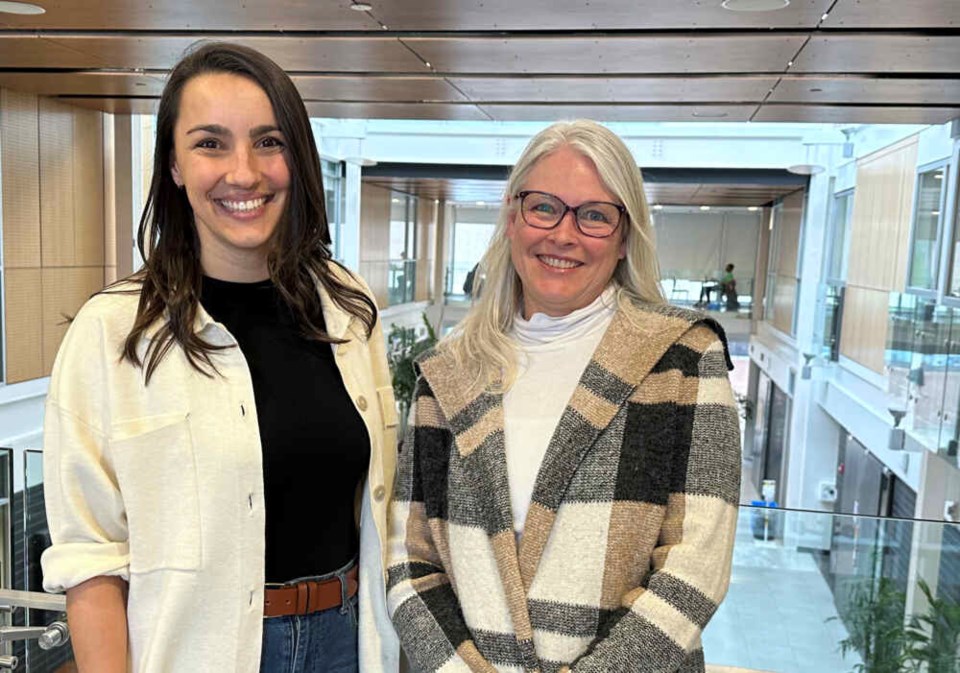Interweaving Indigenous and Western values can help restore and protect vulnerable freshwater systems, according to a recent University of Guelph report.
The comprehensive report from the University of Guelph researchers released by the Global Commission on the Economics of Water (GCEW) urges collaboration and the ‘braiding’ of viewpoints in looking after threatened water systems.
“Freshwater ecosystems are being degraded around the world,” said Andrea Bradford, a water resources engineering professor.
“Indigenous peoples have a lot to offer in terms of worldviews and values that would inform different academic disciplines.”
The report, Indigenous and Western Knowledge: Bringing Diverse Understandings of Water Together in Practice, was written by researchers from the college of engineering and physical sciences, the Ontario Agricultural College and the college of arts.
“Our purely Western lens is not working,” said Samantha Mehltretter, a PhD candidate in the school of engineering and the report’s first author.
Co-authors include Sheri Longboat (Mohawk) Six Nations of the Grand River, a professor at the school of environmental design and rural development, and Brittany Luby (Anishinaabe descent) Niisaachewan Anishinaabe Nation, a professor in the department of history.
Longboat says the report highlights the importance of engaging with Indigenous peoples, including those whose who are directly impacted by environmental issues.
“There is a great opportunity now more than ever, and a greater need now more than ever, to bring all knowledge forward in ways that allow us to problem-solve for the future under climate change issues and global water insecurity,” Longboat said.
“There is also greater recognition of Indigenous rights and governance for stewardship of traditional lands and waters. We know that Indigenous knowledge coupled with Western science can strengthen policy-making and decision-making and ultimately improve water outcomes for a sustainable future.”
Bradford says researchers were given the opportunity to communicate how important water is in terms of its spirituality in relation to Indigenous people, how deeply intertwined are the health of water and the ecosystems that it supports, and how important that is for the wellbeing of Indigenous people.
“It was great to be invited to provide a different perspective and that can be difficult because there are so many different Indigenous cultures. We tried to be very clear in that we are not trying to speak for every culture, but there are some commonalities in terms of how Indigenous communities view water in contrast to the western view of water as a resource, essentially to be exploited to the last drop for human benefit,” Bradford said.
Nearly 150 earlier papers, government reports\ and other data sources were reviewed on the interweaving of Western and Indigenous knowledge systems and freshwater ecosystems in North America.
“We screened a huge amount of literature, almost 8,000 documents. From 150 papers we were able to extract the 'gems',” Bradford said.
Key recommendations include greater Indigenous-Western collaboration, culturally appropriate projects, centring of Indigenous values and voices, and openness and humility in addressing shared water concerns.
“Bringing together viewpoints is important for protecting water, ecosystems, and biodiversity," Bradford said.
“It’s also important for protecting human health, including mental health, as well as for Indigenous communities reliant on water resources for their livelihoods, she said: “We need to understand the sense of loss that Indigenous Peoples feel when these relationships are harmed.”
Bradford says it was a beneficial to be able to share dozens and dozens of examples that people can now build on.
“We are not trying to suggest that there is any best approach, but that these are things that worked in a variety of different other contexts, and this is a starting point,” Bradford said.
“We are hoping that though this, we can help benefit others who are searching for ways to start this kind of work.”
The report was commissioned in spring 2022 by the Global Commission on the Economics of Water, an international group convened that year. This report and related documents are available on the GCEW website here.



